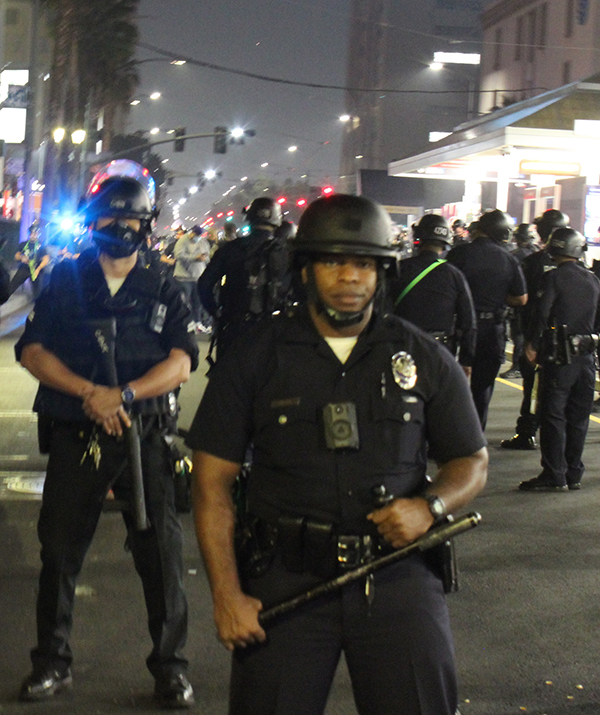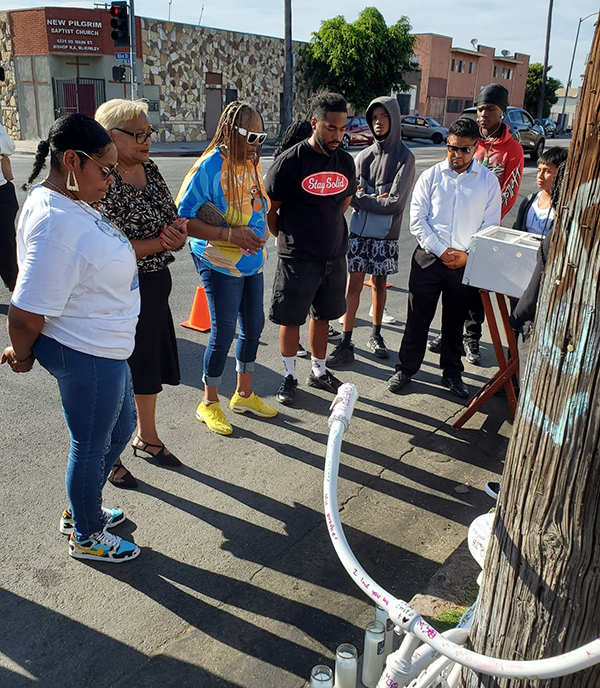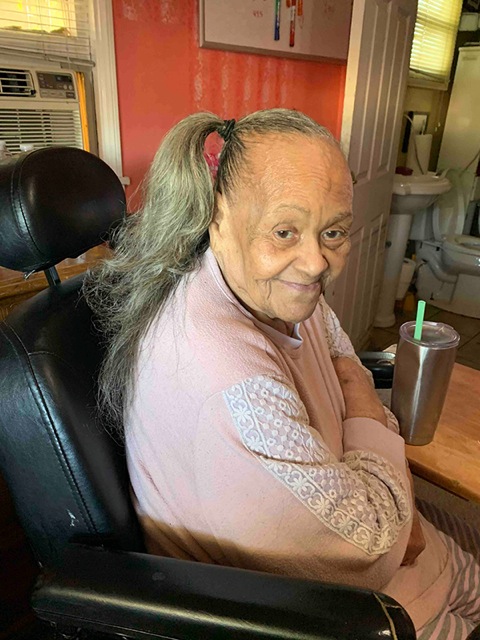L.A. Academy classes lacking Black recruits

Los Angeles Police Department officers stand watch in Los Angeles as City Hall moves to speed up hiring, a push that comes as recent academy classes graduated without a single Black recruit.
Photo by Stephen Oduntan
By Stephen Oduntan
Contributing Writer
LOS ANGELES — Two consecutive Los Angeles Police Academy classes have graduated without a single Black recruit, raising new questions about who is entering — and finishing — the city’s police pipeline at a time when City Hall is racing to hire more officers.
On Sept. 11, Mayor Karen Bass signed Executive Directive No. 14, ordering the city Personnel Department and the Los Angeles Police Department to “break through outdated bureaucratic barriers,” create a dedicated hiring division inside personnel and shorten the selection process to 180 days. The order gives agencies 15 days to draft protocols, set stage deadlines and keep academy classes consistently full.
The city reports about 8,700 officers remain on the force, after 660 departures last year. Officials say they will fund an additional 240 recruits once academy seats are filled.
City leaders frame speed as both a safety measure and a recruitment strategy, pointing to the average 322 days it now takes to move from a personal history statement to an academy slot. During that wait, candidates often accept offers from faster-moving departments.
But officers and advocates say speed alone won’t answer the harder question of who makes it through. The LAPD process runs applicants through multiple screens — testing, background checks, polygraph, medical and psychological exams — before academy training even begins. After graduation, recruits enter months of supervised patrol under a field training officer. Without public data at each stage, observers say it remains unclear where Black candidates, particularly women, are falling away.
For this story, The Wave requested: benchmarks under ED-14, pass and advancement rates by race and gender, whether the city applies the “80% rule” for adverse impact, dates of the most recent validation studies for screening tools, and a timeline for a public dashboard tracking academy outcomes. City agencies did not respond by deadline.
Why it matters: those numbers reveal where candidates are lost, whether any step screens out Black applicants at higher rates, and whether key screens are current and job-related. A public dashboard would let Angelenos see — quarter by quarter — whether a faster process is also a fair one.
Inside the department, officers point to mentoring, tutoring, access to specialty units and scheduling flexibility as critical supports. Several Black officers said the dismantling or reshuffling of diversity units in recent years has left newer recruits with fewer resources. The Wave asked city personnel to identify which office now manages hiring equity and how many staff are assigned; officials did not answer.
The shortage comes as veteran Black officers hired in the 1980s and ’90s near retirement, raising concerns about leadership gaps ahead of the 2026 FIFA World Cup and 2028 Olympic Games. Filling academy seats may help stabilize patrol staffing, but rebuilding a representative leadership pipeline, officers and advocates say, will require a longer horizon.
Bass said the directive is meant to advance both priorities.
“My number one job as mayor is to keep Los Angeles safe,” she said in announcing the order. Councilman John Lee, who chairs the Public Safety Committee, called the move a way to bring in “talented and qualified officers” as the city prepares for global events.
The next academy class will be an early test: will it be full, and will it include Black recruits? Advocates say the larger test is whether the city begins publishing data that shows whether a faster process is also a fair one.
Stephen Oduntan is a freelance writer for Wave Newspapers.





